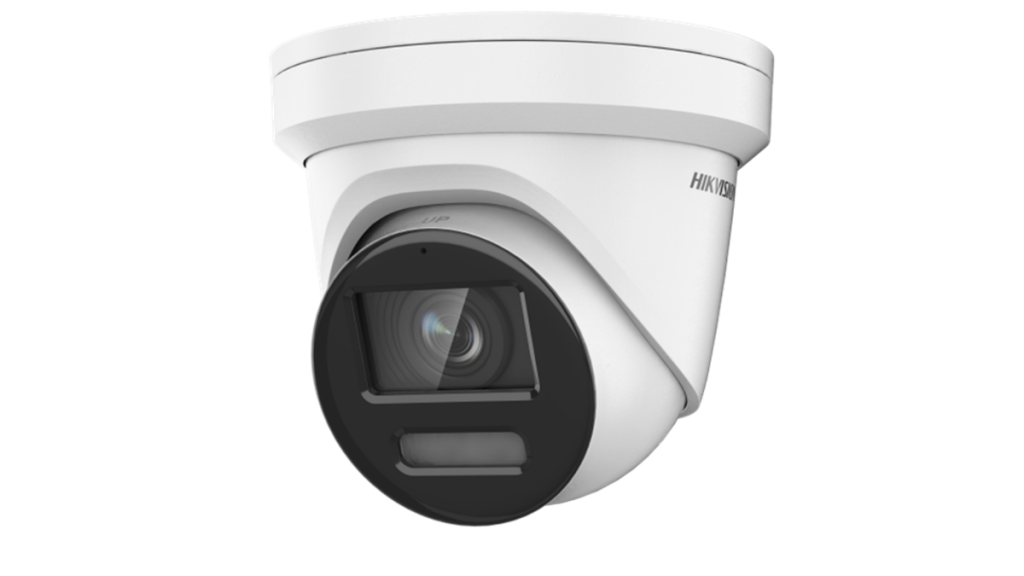Background: IP Security Cameras Enhance Security
In today’s fast-paced world, security concerns have become paramount, driving the need for advanced security systems. Among these innovations, IP security cameras have emerged as a cutting-edge solution for ensuring safety and safeguarding assets.
IP security cameras, also known as network cameras, have revolutionised the security landscape, combining the power of digital technology with internet connectivity. This article delves into the world of IP security cameras, exploring their features, benefits, and applications, as well as their impact on security management.
Understanding IP Security Cameras
IP security cameras are a modern iteration of closed-circuit television (CCTV) cameras that have been used for decades in various settings, such as businesses, public spaces, and residential areas. The primary difference lies in how they transmit data.
Traditional analogue CCTV cameras process and send video signals to a limited set of monitors or recording devices. Conversely, IP cameras convert video footage into digital format, which is easily transmitted and accessed over an internet protocol (IP) network.
Features and Components
IP security cameras come equipped with various advanced features, making them versatile and efficient. Key components include:
a. High-resolution imaging: IP cameras boast high-definition (HD) and sometimes even ultra-HD resolution, enabling crisp and clear video footage. This can be pivotal in identifying small elements which can be used to reference events on a video recording.
b. Digital pan-tilt-zoom (PTZ) capabilities: Operators can remotely control the camera’s movement, providing a greater field of view without physically adjusting the camera. This level of control is immensely beneficial and efficient.
c. Two-way audio: Many IP cameras support two-way audio, allowing communication between the operator and individuals in the camera’s vicinity. This can be handy for a number of reasons which include deterring certain actions or even talking someone through a process.
d. Infrared (IR) night vision: IP cameras are often equipped with infrared sensors, enabling them to capture footage in low-light or no-light conditions.
e. Power over Ethernet (PoE): IP cameras can be powered through the same Ethernet cable used for data transmission, reducing installation complexities.
Benefits of IP Security Cameras
IP security cameras offer numerous advantages over traditional analogue CCTV systems, making them an increasingly popular choice for businesses and individuals alike:
a. Enhanced image quality: With HD or higher resolutions, IP cameras deliver more detailed and clearer images, making identification of individuals and objects easier.
b. Remote access and monitoring: Users can access live and recorded footage remotely from any internet-connected device, providing real-time security even when away from the location.
c. Scalability: IP camera systems can be easily expanded, adding more cameras to the network without the need for significant infrastructure changes.
d. Cost-effectiveness: While initial setup costs might be higher, IP cameras often prove cost-effective in the long run due to their scalability and remote accessibility, reducing the need for on-site security personnel.
e. Integration with other systems: IP cameras can be integrated with other security systems, such as access control and alarms, providing a comprehensive security solution.
Applications of IP Security Cameras
The versatility of IP security cameras enables their application in various environments, including:
a. Commercial establishments: Retail stores, banks, and offices use IP cameras to deter theft, monitor customer behaviour, and ensure employee safety.
b. Public spaces: IP cameras are deployed in streets, parks, and transportation hubs to enhance public safety, prevent criminal activities, and aid law enforcement.
c. Residential use: Homeowners employ IP cameras to monitor their properties remotely, enhancing home security and providing peace of mind.
d. Industrial settings: Factories and warehouses use IP cameras to ensure safety compliance, monitor production processes, and protect valuable assets.
Addressing Security and Privacy Concerns
While IP security cameras offer undeniable benefits, they also raise concerns regarding privacy and potential misuse of data. Adequate measures must be taken to address these issues, including:
a. Secure network protocols: Ensuring the use of encrypted transmission protocols (e.g., HTTPS) to safeguard data during transmission.
b. Access controls: Implementing robust access control measures to restrict camera access to authorised personnel only.
c. Regular updates: Keeping camera firmware up-to-date to patch security vulnerabilities and enhance system integrity.
d. Complying with data protection laws: Adhering to relevant privacy regulations and obtaining consent when necessary.
Summary and Final Thought
IP security cameras have emerged as a game-changer in the realm of security management. Their digital nature, coupled with internet connectivity, enables advanced features and remote accessibility. From commercial establishments to public spaces and residential areas, IP cameras are widely used across diverse applications.
While their benefits are significant, addressing security and privacy concerns remains crucial for their responsible and ethical use. As technology continues to evolve, IP security cameras are likely to play an even more prominent role in shaping the future of the security industry in the digital age.

